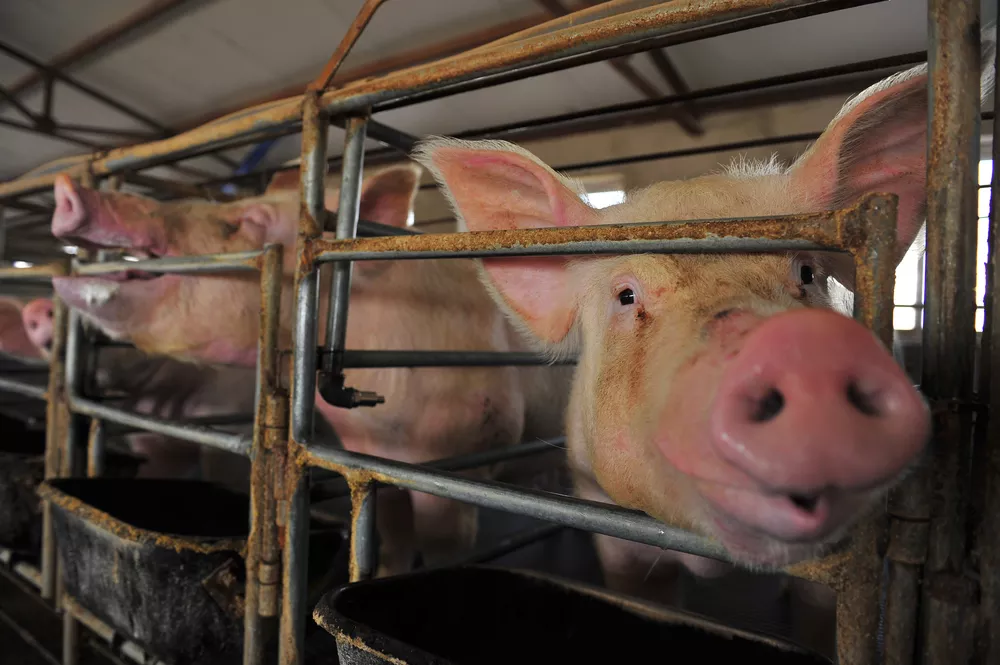Bill to unwind American elections facing very stiff headwinds.
Washington D.C. – In a remarkable showing of opposition to the EATS Act, 171 House members, including 5 Republicans, today sent a letter to Agriculture Committee leaders opposing a sweeping bill to nullify state agriculture laws called the EATS Act. Reps. Earl Blumenauer, D-Oregon, and Brian Fitzpatrick, R-Penn., led the letter.
This letter against EATS, H.R. 4417, comes on the heels of a new report issued last week by the Center for a Humane Economy and Animal Wellness Action revealing that a diversified pig production sector already in place can meet the modest demand created by Prop 12 in California and Question 3 in Massachusetts for more humanely raised pork. Those ballot measures are the primary targets of EATS, but the proposal sweeps more broadly and, according to a Harvard analysis, could nullify more than 1,000 state laws.

Nearly 40 percent of U.S. breeding sows are already in group housing systems, rather than gestation crates, and the Center’s market analysis shows that California and Massachusetts together will require just 6% of total U.S. pork production to come from facilities that allow the sows an opportunity to lie down, stand up, and turn around. The report reveals that the industry has been in transition for more than two decades since Florida banned the use of gestation crates in 2002 and that it has existing capacity to supply gestation-crate free pork in two states.
The report notes that the pork industry, as a matter of law, is already selling pork from the offspring of overcrowded, immobilized breeding sows in 48 states and 139 nations without any animal welfare restrictions or minimum space allotments.
“A letter signed by 171 House members is an enormous outpouring of opposition to the EATS Act,” said Wayne Pacelle, president of the Center for a Humane Economy. “The Congress should not be in the business of overturning state elections to drive more vertical integration within a U.S. pork industry already heavily infiltrated by foreign-owned factory-farming multinationals.” Efforts to adopt a similar measure to EATS were rejected as amendments to the 2014 and 2018 Farm bills, and that was prior to the Supreme Court of the United States declaring that Prop 12 and Question 3 were constitutional and proper exercises of state authority.
The letter may be viewed here.
The Center’s report notes that Prop 12 and Question 3 exempt all combined and canned pork products, which represents about 42% of pork sales in California and Massachusetts, meaning that nearly half of the pork sold in these two states need not come from farms providing some ample living space to the sows.
The NPPC lost five of five ballot measures on gestation-crate confinement, each one by double-digit margins, with landslide votes in California (63% “Yes” vote) and Massachusetts (78% “Yes” vote). It lost 12 of 12 court cases challenging Prop 2 and Prop 12, including the SCOTUS ruling in May 2023. The NPPC also lost the debate with 60 major food retailers, including giants in food retail such as McDonald’s, Costco, and Safeway that have strong anti-gestation-crate policies. In July, Governor Phil Murphy signed a ban on gestation crates in New Jersey after the Assembly passed a ban on gestation crates 73 to 1 and the Senate passed the measure 35 to 1.
